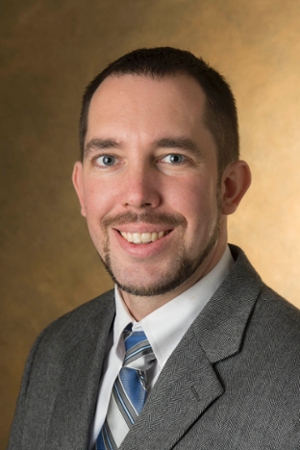SIUE Joins U.S. Engineering Schools to Meet Grand Challenges
 In a letter of commitment presented to President Barack Obama at the White House Science Fair Monday, March 23, the Southern Illinois University Edwardsville School of Engineering was among more than 120 U.S. engineering schools announcing plans to educate a new generation of engineers expressly equipped to tackle some of the most pressing issues facing society in the 21st century.
In a letter of commitment presented to President Barack Obama at the White House Science Fair Monday, March 23, the Southern Illinois University Edwardsville School of Engineering was among more than 120 U.S. engineering schools announcing plans to educate a new generation of engineers expressly equipped to tackle some of the most pressing issues facing society in the 21st century.
The “Grand Challenges,” identified through initiatives such as the White House Strategy for American Innovation, the National Academy of Engineering (NAE) Grand Challenges for Engineering, and the United Nations Millennium Development Goals, include complex yet critical goals such as engineering better medicines, making solar energy cost-competitive with coal, securing cyberspace and advancing personalized learning tools to deliver better education to more individuals.
Each of the 122 signing schools has pledged to graduate a minimum of 20 students per year who have been specially prepared to lead the way in solving such large-scale problems, with the goal of training more than 20,000 formally recognized “Grand Challenge Engineers” over the next decade.
“Through our initiatives in these areas, we are attracting highly prepared students who are poised to make significant contributions as part of the nationwide effort to address the Grand Challenges,” said Chris Gordon, PhD, associate professor, chair of the Department of Construction and interim associate dean in the SIUE School of Engineering.
Grand Challenge Engineers will be trained through special programs at each institution that integrate five educational elements: 1) a hands-on research or design project connected to the Grand Challenges; 2) real-world, interdisciplinary experiential learning with clients and mentors; 3) entrepreneurship and innovation experience; 4) global and cross-cultural perspectives; and 5) service-learning.
The training model was inspired by the National Academy of Engineering-endorsed Grand Challenge Scholars Program (GCSP), established in 2009 by Duke’s Pratt School of Engineering, Olin College, and the University of Southern California’s Viterbi School of Engineering in response to the NAE’s 14 Grand Challenges for Engineering in the 21st century. There are currently 20 active GCSPs and more than 160 NAE-designated Grand Challenge Scholars have graduated to date. Half of the graduates are women—compared with just 19 percent of U.S. undergraduate engineering students—demonstrating the program’s appeal to groups typically underrepresented in engineering.
“The NAE’s Grand Challenges for Engineering are already inspiring more and more of our brightest young people to pursue careers that will have direct impacts on improving the quality of life for people across the globe,” said NAE President C.D. Mote Jr. “Imagine the impact of tens of thousands of additional creative minds focused on tackling society’s most vexing challenges. ‘Changing the world’ is not hyperbole in this case. With the right encouragement, they will do it and inspire others as well.”
More information on this initiative, including a copy of the letter of commitment, is available here. The initiative grew out of a 2014 workshop organized by the American Association of Engineering Societies, Epicenter, Engineers Without Borders USA, EPICS, and the NAE Grand Challenge Scholars Program.
National Academy of Engineering
The mission of the National Academy of Engineering is to advance the well being of the nation by promoting a vibrant engineering profession and by marshaling the expertise and insights of eminent engineers to provide independent advice to the federal government on matters involving engineering and technology. The NAE, along with the National Academy of Sciences (NAS), Institute of Medicine, and National Research Council make up the National Academies. They are private, independent nonprofit institutions established under a congressional charter granted to NAS in 1863. For more information, visit www.nae.edu.
Photo: Chris Gordon, PhD, associate professor, chair of the Department of Construction and interim associate dean in the SIUE School of Engineering.









